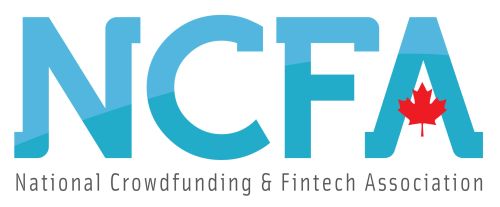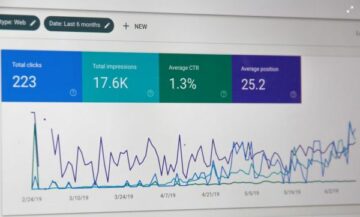April 24, 2023

Image: Freepik/drobotdean
Is a recession coming to Canada in the near future? Economists believe that a moderate recession could hit Canada at some point in 2023 or 2024 due to aggressive interest rate hikes aimed at countering inflation.
Whether one comes in a matter of months or a matter of years, a recession is inevitable. The economy is cyclical, and corrections are part of the broader process.
Investment success depends on your ability to ride through recessions. In part, that means resisting the urge to panic sell when your stocks or fund investments are in decline. Unless you really need the funds, market downturns are the worst time to sell.
Another way your portfolio can ride out the storm is by including alternative assets that aren’t affected by recessions. These alternative assets are affected by other market influences and have little correlation or negative correlation to stock markets. They’re worth exploring as part of a portfolio that’s resilient through downturns.
#1 Bullion: Gold and Silver Bars and Coins
Precious metals are a unique commodity that can offer a hedge against recessions and stock market crashes. Recessions have historically had a positive impact on gold prices, largely due to changes in investor sentiment. As market volatility increases, more investors want to park their money in gold and silver bullion.
One of the most popular ways of owning bullion is the physical product. Gold and silver are available in refined bars and coins. Find a Canadian source for bullion investments to get the best prices for investment-grade gold and silver products.
It can make a lot of sense to allocate part of your portfolio to bullion as an alternative that can help you ride the waves of a recession.
#2 Real Estate
The real estate market is another market that can prove to be resilient against recessions. If you’re investing in real estate beyond your own home, you’re usually investing in income-generating properties by collecting rent. Regardless of the state of the economy, people need somewhere to live, and properties generally continue to generate rent.
There are downsides to investing in real estate. Real estate is more sensitive to localized economies than stocks, bullion, or deposits. It can also be a lot more work owning a rental property than putting your money into stocks or gold.
#3 Term Deposits
A term deposit like a GIC (Guaranteed Investment Certificate) is where you invest a sum with a guaranteed interest rate. These are often offered by financial institutions which use the investment as a loan with either a fixed or variable interest rate.
The financial institution will invest that money itself. Some GICs are market-linked, offering the best of both worlds. You will always receive the minimum, guaranteed interest rate, but if markets perform well, you may even be able to earn more.
Usually, GICs have a fixed term, as well, and you will not be able to redeem them until they mature. The longer the term, the higher the interest rate.
Term deposits are remarkably safe investments. The main risk that you face is that inflation can outpace your gains or that growth in a mutual fund outpaces a long-term deposit. Nevertheless, the guarantee provides a lot of peace of mind.
See: Smart Investing Tips While Working a 9-5
The right mix of assets can help your portfolio thrive no matter what the market is doing. Don’t be afraid to diversify your assets and explore alternatives to stocks.
 The National Crowdfunding & Fintech Association (NCFA Canada) is a financial innovation ecosystem that provides education, market intelligence, industry stewardship, networking and funding opportunities and services to thousands of community members and works closely with industry, government, partners and affiliates to create a vibrant and innovative fintech and funding industry in Canada. Decentralized and distributed, NCFA is engaged with global stakeholders and helps incubate projects and investment in fintech, alternative finance, crowdfunding, peer-to-peer finance, payments, digital assets and tokens, blockchain, cryptocurrency, regtech, and insurtech sectors. Join Canada's Fintech & Funding Community today FREE! Or become a contributing member and get perks. For more information, please visit: www.ncfacanada.org
The National Crowdfunding & Fintech Association (NCFA Canada) is a financial innovation ecosystem that provides education, market intelligence, industry stewardship, networking and funding opportunities and services to thousands of community members and works closely with industry, government, partners and affiliates to create a vibrant and innovative fintech and funding industry in Canada. Decentralized and distributed, NCFA is engaged with global stakeholders and helps incubate projects and investment in fintech, alternative finance, crowdfunding, peer-to-peer finance, payments, digital assets and tokens, blockchain, cryptocurrency, regtech, and insurtech sectors. Join Canada's Fintech & Funding Community today FREE! Or become a contributing member and get perks. For more information, please visit: www.ncfacanada.org
Want to get insider access to some of the most innovative advances happening in #fintech. Register for #FFCON23 and hear from global thought leaders what’s next! Click below for Open Access tickets to all virtual programming and on-demand content from FFCON23.Support NCFA by Following us on Twitter! |
Related Posts
- SEO Powered Content & PR Distribution. Get Amplified Today.
- Platoblockchain. Web3 Metaverse Intelligence. Knowledge Amplified. Access Here.
- Minting the Future w Adryenn Ashley. Access Here.
- Source: https://ncfacanada.org/alternative-assets-that-can-carry-your-portfolio-through-a-recession/
- :is
- :not
- :where
- $UP
- 100
- 2018
- 2023
- 2024
- 28
- a
- ability
- Able
- access
- advances
- affiliates
- against
- aggressive
- All
- also
- alternative
- alternative assets
- alternative finance
- alternatives
- always
- an
- and
- Another
- April
- ARE
- AS
- Assets
- At
- available
- bars
- BE
- become
- believe
- below
- BEST
- best prices
- Beyond
- blockchain
- both
- broader
- bullion
- but
- by
- cache
- CAN
- Canada
- carry
- Changes
- click
- closely
- Coins
- Collecting
- COM
- coming
- commodity
- community
- content
- continue
- Corrections
- Correlation
- could
- create
- Crowdfunding
- cryptocurrency
- Cyclical
- decentralized
- Decline
- Demand
- depends
- deposit
- deposits
- digital
- Digital Assets
- distributed
- diversify
- doing
- Dont
- downsides
- downturns
- earn
- economies
- economists
- economy
- ecosystem
- Education
- either
- engaged
- estate
- Ether (ETH)
- Even
- events
- explore
- Exploring
- Face
- finance
- financial
- financial innovation
- financial institution
- Financial institutions
- Find
- fintech
- fixed
- following
- For
- from
- fund
- funding
- funding opportunities
- funds
- future
- Gains
- generally
- generate
- get
- Global
- Gold
- Gold Prices
- Government
- Growth
- guarantee
- guaranteed
- Happening
- Have
- hear
- hedge
- help
- helps
- higher
- Hikes
- historically
- Hit
- Home
- http
- HTTPS
- Impact
- in
- Including
- Income-generating
- Increases
- Indicators
- industry
- inevitable
- inflation
- information
- Innovation
- innovative
- Insider
- Institution
- institutions
- Insurtech
- Intelligence
- interest
- INTEREST RATE
- INTEREST RATE HIKES
- into
- Invest
- investing
- investment
- Investments
- investor
- investor sentiment
- Investors
- IT
- itself
- Jan
- join
- jpg
- large
- largely
- leaders
- like
- little
- live
- Live Events
- loan
- long-term
- longer
- Lot
- Main
- make
- March
- Market
- market crashes
- market volatility
- Markets
- Matter
- mature
- max-width
- May..
- means
- member
- Members
- Metals
- mind
- minimum
- money
- months
- more
- most
- Most Popular
- mutual
- mutual fund
- Near
- Need
- negative
- networking
- Nevertheless
- Newsletter
- of
- offer
- offered
- offering
- on
- On-Demand
- ONE
- open
- opportunities
- or
- Other
- our
- own
- Panic
- Park
- part
- partners
- payments
- peace
- peer to peer
- People
- perform
- perks
- physical
- plato
- Plato Data Intelligence
- PlatoData
- please
- Point
- Popular
- portfolio
- positive
- Prices
- process
- Product
- Products
- Programming
- projects
- properties
- property
- Prove
- provides
- Putting
- Rate
- rate hikes
- real
- real estate
- real estate market
- really
- receive
- recession
- redeem
- refined
- Regardless
- register
- Regtech
- Rent
- resilient
- Ride
- Risk
- s
- safe
- Sectors
- sell
- sense
- sensitive
- sentiment
- Services
- sign
- Silver
- smart
- some
- somewhere
- Source
- stakeholders
- State
- Stewardship
- stock
- stock market
- Stock markets
- Stocks
- Storm
- success
- than
- that
- The
- The State
- their
- Them
- These
- they
- thought
- thought leaders
- thousands
- Thrive
- Through
- tickets
- time
- tips
- to
- today
- Tokens
- true
- unique
- us
- use
- usually
- vibrant
- Virtual
- Visit
- Volatility
- waves
- Way..
- ways
- WELL
- What
- which
- while
- will
- with
- Work
- working
- works
- world’s
- Worst
- worth
- years
- you
- Your
- zephyrnet














